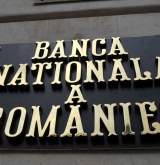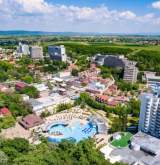18-year deposit
“We predict an increase by 100%. The market will probably reach its peak within 3-5 years, up to 150-200,000 collections, which would account for 10% of total childbirths in Romania”, Marius Calomfirescu (photo), managing director of stem cell bank Biogenis told Wall-Street.
The company he heads, that has a partnership with Memorial Hospital Warsaw, where the stem cells are stored, is expected to triple sales to €2.4 million. “This year we will put in place organizational development programs, as we invested massively in infrastructure, as well in the opening of a storage location in Bucharest”, said Calomfirescu.
A client spends an average €1,000 for the collection, processing and storage of stem cells that will be preserved until the child reaches the age of adulthood. Prior to that, the parents have full rights over the stem cell line, and if the company that carried these procedures will not be on the market by then, the cells will be stored further by a third company.
With a median income of €300, these services are clearly geared towards high-earning Romanians, who should also be well informed on the procedures and advantages of stem cell collection. Managing director of Biogenis says clients come from various categories, and are interested in multiple services, including the payment on installment system. “Most of them however, earn higher than average, have higher education level and benefit of premium services”, said Marius Calomfirescu. On the other hand, there are solutions even for the cash-strapped persons: payment in installments and partnerships with financial institutions that make these services more affordable.
Head of Biogenis considers tapping the corporate segment this fall – offers to companies and their employees, with custom-tailored services. “The market is growing and we will have to diversify our services to lure clients. On a medium term, we expect up to 10 licensed companies in the field, half of which with local storage facility”, said Calomfirescu.
A market still �toddling through�
Calomfirescu says the company receives stem cell storage requests from Italy, Germany, Hungary, Austria, Moldova and Bulgaria. In some of these countries, like Italy and France, private banks are prohibited, as stem cell research is endorsed and financed by the state, while in other cases, like Moldova, the market is almost inexistent.
Within less than a year, other centers were opened, Romanian clients having the possibility of storing stem cells exclusively in Romania. A first step was made by the opening in spring this year of Stem Health Unirea, the result of a joint venture between Centrul Medica Unirea and Greece-based Hygeia Group.
The bank will have the capacity to store up to 6,000 units of blood from the umbilical cord, following to extend it to 10,000 units by year-end. Versus previously estimated 1,500 units to be housed by the storage facility, SHU will end year with 800 that will generate around €1 million in revenues. “After the initial investment in the opening of the bank, we have continued investing in the know-how and staff training, operating breakeven being expected to be reached by the end of the year”, said Andreia Valter (photo), managing director of SHU.
Few players in the market
In general, prices charged by private stem cell banks amount to hundreds of euro, and can easily reach thousands of euro. For the collection and processing of stem cell lines, companies charge around €1,000 to which are added other costs, depending on the contract between the two parties. Annual storage fee is up to €50 but banks can offer 10-20% discounts for the second child.




























































![HR [PLAY] Tech Workout - 11...](https://www.wall-street.ro/image_thumbs/thumbs/973/973fe0a3888d417feff63de42e814180-260x260-00-65.jpg?v=1713953504)










